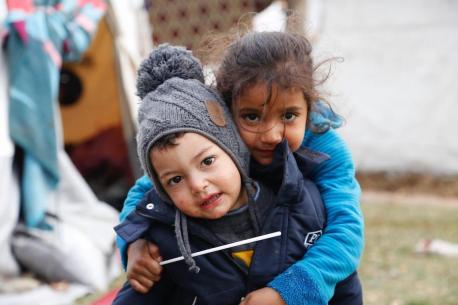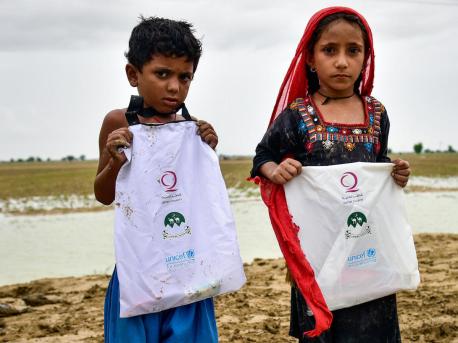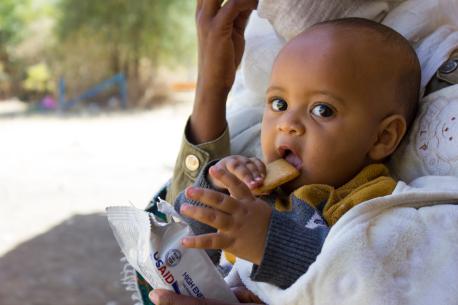Negotiating Ceasefires to Save Children’s Lives
Today is the International Day of Peace, established by the United Nations to help strengthen the ideals of peace around the world. But did you know that UNICEF actually considers children “zones of peace”? This idea of putting children above the political fray led to UNICEF’s groundbreaking work negotiating ceasefires for humanitarian work. The first of these took place in El Salvador in 1985, when then-UNICEF Executive Director James Grant negotiated three “days of tranquility.”
Today is the International Day of Peace, established by the United Nations to help strengthen the ideals of peace around the world. But did you know that UNICEF actually considers children “zones of peace”? This unique concept was first proposed in 1983 by the late Nils Thedin of the Swedish Committee for UNICEF. He expanded upon UNICEF’s commitment to help children in all circumstances by placing them above the political fray and declaring them as “neutral, conflict free zones.”
 This concept led to UNICEF’s groundbreaking work negotiating ceasefires during times of war so that children can receive humanitarian aid. The first of these took place in El Salvador in 1985, when then-UNICEF Executive Director James Grant negotiated three “days of tranquility.” For three days, the fighting stopped, and 250,000 children were immunized. The days of tranquility were repeated every year for six years, until the civil war ended. Not only were 80% of all Salvadoran children immunized, but a precedent was set for similar humanitarian ceasefires to follow.
These include a three-day ceasefire in Lebanon in March of 1987, and the establishment of a “corridor of peace” in 1986 in Uganda, allowing for the safe travel of aid workers and for vaccine transport. In 1989, in the midst of a disastrous famine in war-torn Sudan, UNICEF negotiated similar corridors of peace that brought food and medical supplies to the millions of people in desperate need of help. And in 2007, in honor of the International Day of Peace, UNICEF was able to broker a three-day ceasefire in Afghanistan during which 1.4 million children were vaccinated against polio.
These humanitarian ceasefires and “zones of peace” are an embodiment of UNICEF’s resolve to help all children, no matter the circumstances. On this International Day of Peace, we wish that wars would end. But until then, UNICEF and its partners will do everything in their power to make sure that children caught up in the world’s brutal conflicts are not forgotten.
This concept led to UNICEF’s groundbreaking work negotiating ceasefires during times of war so that children can receive humanitarian aid. The first of these took place in El Salvador in 1985, when then-UNICEF Executive Director James Grant negotiated three “days of tranquility.” For three days, the fighting stopped, and 250,000 children were immunized. The days of tranquility were repeated every year for six years, until the civil war ended. Not only were 80% of all Salvadoran children immunized, but a precedent was set for similar humanitarian ceasefires to follow.
These include a three-day ceasefire in Lebanon in March of 1987, and the establishment of a “corridor of peace” in 1986 in Uganda, allowing for the safe travel of aid workers and for vaccine transport. In 1989, in the midst of a disastrous famine in war-torn Sudan, UNICEF negotiated similar corridors of peace that brought food and medical supplies to the millions of people in desperate need of help. And in 2007, in honor of the International Day of Peace, UNICEF was able to broker a three-day ceasefire in Afghanistan during which 1.4 million children were vaccinated against polio.
These humanitarian ceasefires and “zones of peace” are an embodiment of UNICEF’s resolve to help all children, no matter the circumstances. On this International Day of Peace, we wish that wars would end. But until then, UNICEF and its partners will do everything in their power to make sure that children caught up in the world’s brutal conflicts are not forgotten.

In 2007, in Afghanistan, a health worker vaccinates a child against polio. UNICEF and WHO called for a ceasefire during the three-day polio immunization drive. ©UNICEF/NYHQ2007-1074/Shehzad Noorani


